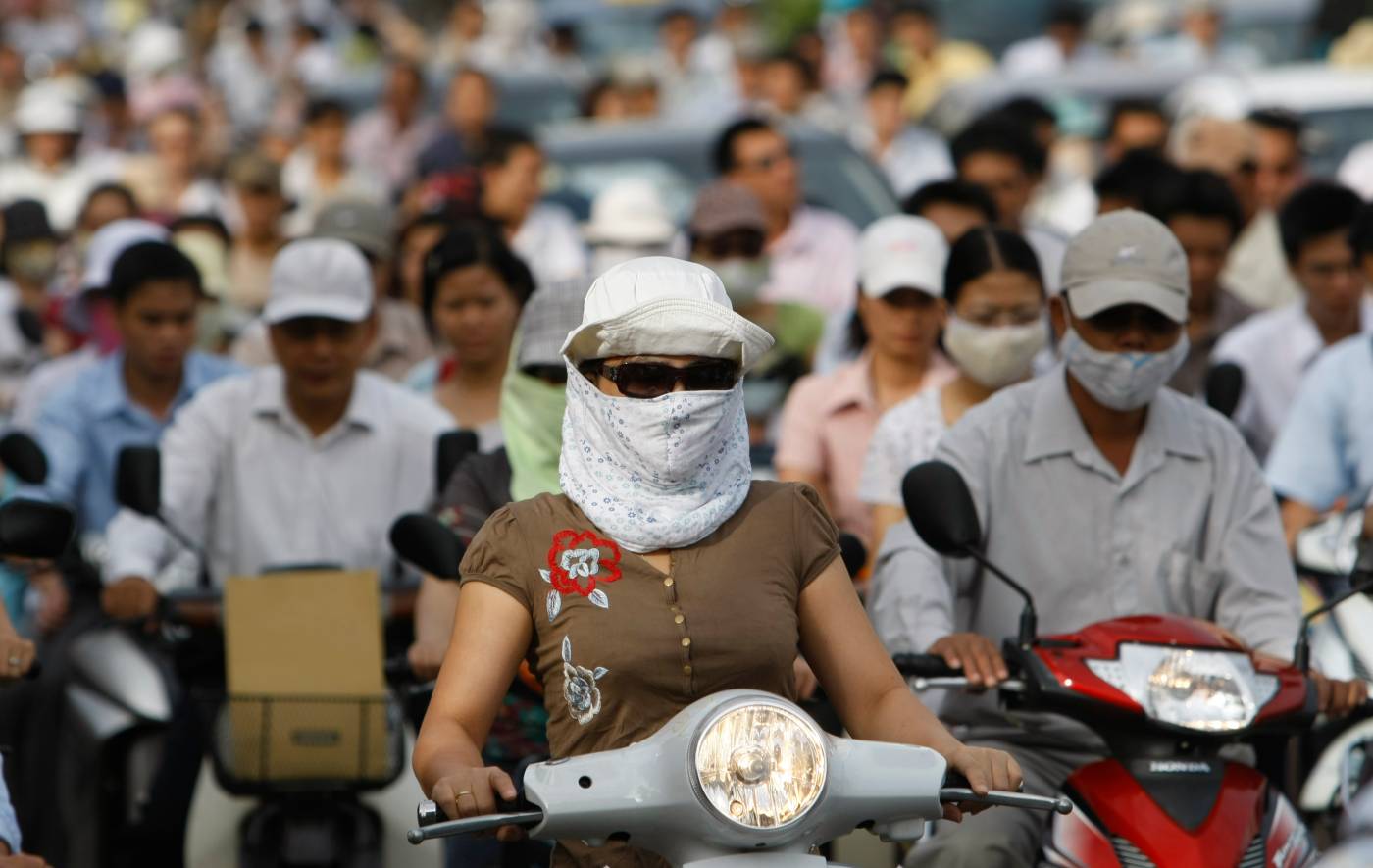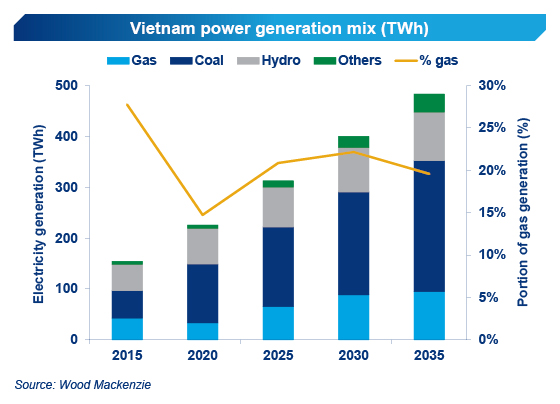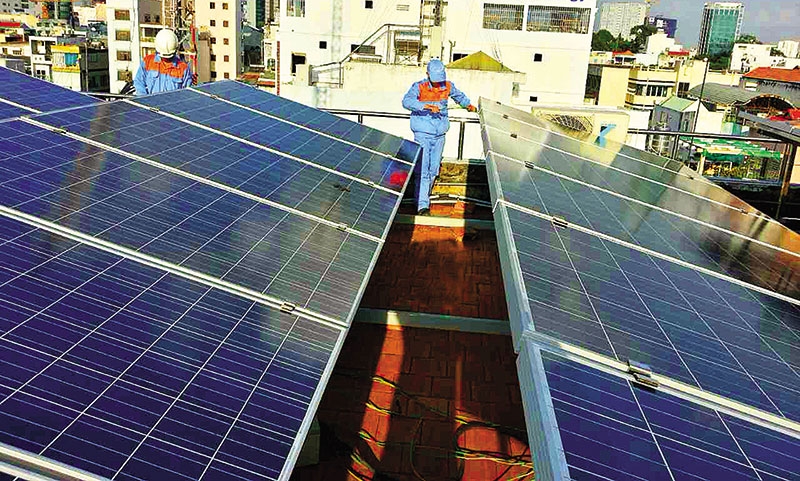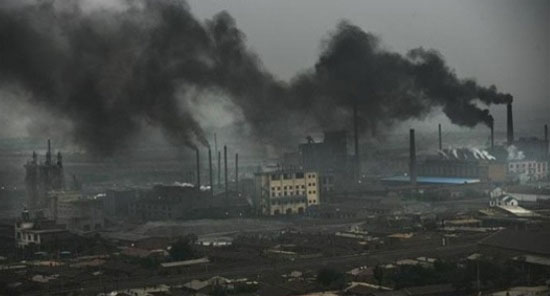
| Author :
Bac Lieu chose clean energy, clean environment, clean shrimp and phased out coal-fired power plant – a wise decision which satisfies people’s expectation, and leads a new initiative for Mekong ...
Bac Lieu chose clean energy, clean environment, clean shrimp and phased out coal-fired power plant – a wise decision which satisfies people’s expectation, and leads a new initiative for Mekong Delta, Vietnam.
Vietnam Sustainable Energy Alliance (VSEA) and Non-Communicable Diseases Viet Nam (NCDs-VN) wholeheartedly support Bac Lieu Province leaders in their decision to “Withdraw Cai Cung coal-fired power plant project1 in the province from the Power Development Plan VII to ensure clean environment for aquaculture in the context that this province has high potential for wind power development”. Bac Lieu provincial leaders presented this proposal in the meeting with the Prime Minister on September 20, 2016 in Ha Noi. Prime Minister Nguyen Xuan Phuc has acknowledged and highly appreciated Bac Lieu’s effort “while at risk, […] to find development opportunities.”
Bac Lieu leaders have made a timely and breakthrough decision which reflects their proactiveness in selecting clean and sustainable development model towards applying science and technology advancement and bringing into play the province’s advantages. It shows the leaders’ thoughtfulness for the community’s environment, health, and livelihoods, for which local people in any provinces are longing. Prioritizing wind power, backing away from coal power, Bac Lieu province is a pioneer in switching from “Brown economy” to “Green economy”, which prevents the increase in Non-Communicable Diseases (NCDs) incurred by air pollutants emission from coal-fired power plants. Bac Lieu’s decision has promptly delivered the answer to reducing the reliance on coal power in Vietnam.
According to the Revised Power Development Plan VII (PDP VII), MeKong Delta will have the largest coal power capacity nationwide in 2030 (approximately 18,000MW) with 14 plants in Bac Lieu, Hau Giang, Long An, Soc Trang, Tien Giang and Tra Vinh provinces. Coal-fired power plants consume a huge amount of water (4,163 liters of water for 1 MWh production), of which 95% is used for cooling. According to VSEA research studies in coal-fired power plants in Quang Ninh, and Hai Phong, waste water from the cooling system is usually discharged at 7.5 to 9.30C higher than input water, which causes the reduction in fishes. If all coal-fired power plants are built and operated in the Mekong Delta as planned, every day they will discharge approximately 70 million m3 of water, reaching up to 400C. This will be a serious risk to aquatic ecosystem and fisheries in Mekong Delta where water is culture economy, and livelihood of 20 million local residents here.
Worse off, Mekong Delta is one of the world’s three most vulnerable deltas to climate change. In the past few years, local people and authorities in the delta have been striving to confront once-in-a-century disaster of drought and saltwater intrusion. A report of Global Carbon Budget in 2015 shows that coal combustion is the largest source of CO2 emissions, heating up our planet and causing climate change. Therefore, coal power development in Mekong Delta will put mounting pressure on climate change adaptation and mitigation in the delta. Furthermore, coal power plants will cause severe air pollution, which adversely affects people’s health, increasing the burden of diseases, especially NCDs such as respiratory syndrome in children, chronic obstructive pulmonary diseases in adults, stroke, heart diseases, anemia, lung cancers in the elderly, and so on. In the most recent report on health impacts of coal power plants presented in a scientific workshop in 2015, scientists from Harvard University found out that in the past years, coal power has caused approximately 4,300 premature deaths in Vietnam every year.
Ms. Nguy Thi Khanh, Executive Director of GreenID – the coordinating organization of VSEA stated: “Mekong Delta has an enormous potential of renewable energy, especially wind, solar and biomass. In the wave of technological advances in renewable energy as well as significantly falling price, Mekong Delta is standing a great opportunity of producing electricity from renewable energy in replace of coal power to promote a Green economy, which is the choice that Bac Lieu Province has made. A typical example of reducing cost of solar power is Dubai which has made new record set for world’s cheapest solar at 2.99 US cents/1kWh2 (equivalent to 670 dongs/kWh). This price is just half of Vietnam’s electricity price (1,539.35 dongs/kWh)3 announced at the beginning of this year.
If all other Mekong Delta provinces make the same decision as Bac Lieu did, i.e. “say no to coal power” and “say yes to renewable energy”, the dream of a Green economy for Mekong Delta will become true, contributing to the avoidance of NCDs which are top causes of deaths and health expenditure increase in Vietnam.
Vietnam Sustainable Energy Alliance and Non-Communicable Diseases Alliance highly appriciate the wise decision of Bac Lieu provincial authority. We highly recommend the Government and leaders of Mekong Delta provinces prioritize electricity generation from renewable energy instead of coal in order to take advantage of available natural energy resources, ensure a better health condition, and develop a Green economy and lifestyle for people in the delta./.
Office of Vietnam Sustainable Energy Alliance (VSEA) Green Innovation and Development Centre (GreenID) Suite 707, Sunrise Building, 90 Tran Thai Tong Street, Cau Giay District, Hanoi, Vietnam Ms. Do Minh Tam, VSEA Coordinator Phone: 0915 558 690 | Email: mtam@greenidvietnam.org.vn
Office of Non-Communicable Diseases Alliance Research and Training Center for Community Development (RTCCD) No 39, Lane 255, Vong Street, Hai Ba Trung District, Hanoi, Vietnam Ms. Nguyen Hong Hanh, Communication officer Phone: 0936261993; Email: hanh.nguyen@rtccd.org.vn
------------------------------------------------------------------------------------------------------------
Vietnam Sustainable Energy Alliance (VSEA) was established in 2012, with 10 members of Vietnamese and international NGOs cooperating to strengthen sustainable energy development in Vietnam and Mekong region by promoting participatory energy policy-making process, implementation of decentralized renewable energy solutions and application of energy efficiency.
Non-Communicable Diseases Alliance (NCDs-VN) was established in 2015, with 20 members (including 15 associations and organizations working on scientific research, community healthcare, and public heath). NCDs-VN unites Vietnamese and international individuals and organizations who are interested in research and policy advocacy in VietnamVietnam to encourage individuals, households, communities and organizations to take scientific-based actions to reduce the risk of NCDs, and to support Vietnam in complying with guidances of WHO and UN General Assembly on preventing rapidly growing burden of NCDs globally. References:
1. Presentation “Power Development Plan in Mekong Delta and concerned environmental issues: https://drive.google.com/file/d/0B-lsuI049V-sUnhnNG9hT0lCMjg/view?usp=sharing
2. Research studies on the impacts of coal-fired power plants, by CEWAREC: https://drive.google.com/file/d/0B-lsuI049V-sVlczT2RmWkU4MkU/view?usp=sharing
3. Survey reports on coal-fired power plants in Vietnam: https://drive.google.com/file/d/0B-lsuI049VsVWtGSjBVclM3RUE/view?usp=sharing
4. Reference: Coal-fired power plants – things to know: https://drive.google.com/file/d/0B-lsuI049VsMVowd3R3NW5VVm8/view?usp=sharing
5. Presentation “Impacts of coal-fired power plants on air quality and health in Mekong Delta”: https://drive.google.com/file/d/0B-lsuI049V-sNllqMFl3SWlpSXM/view?usp=sharing




